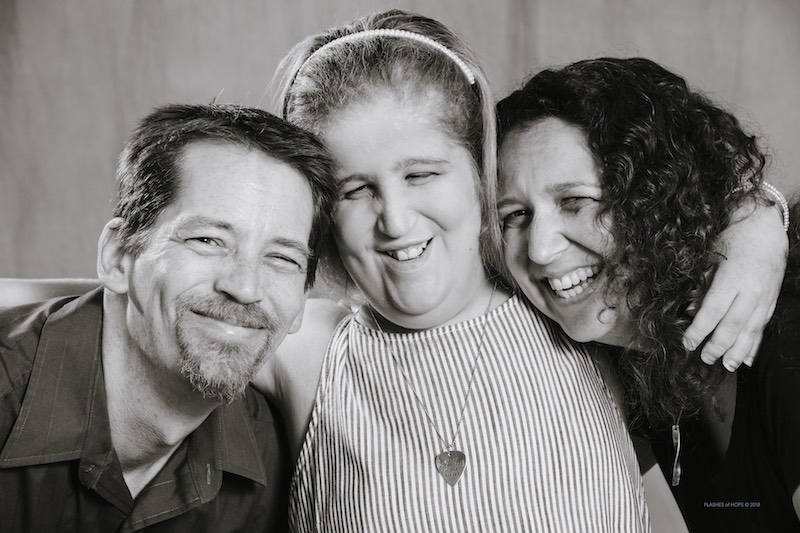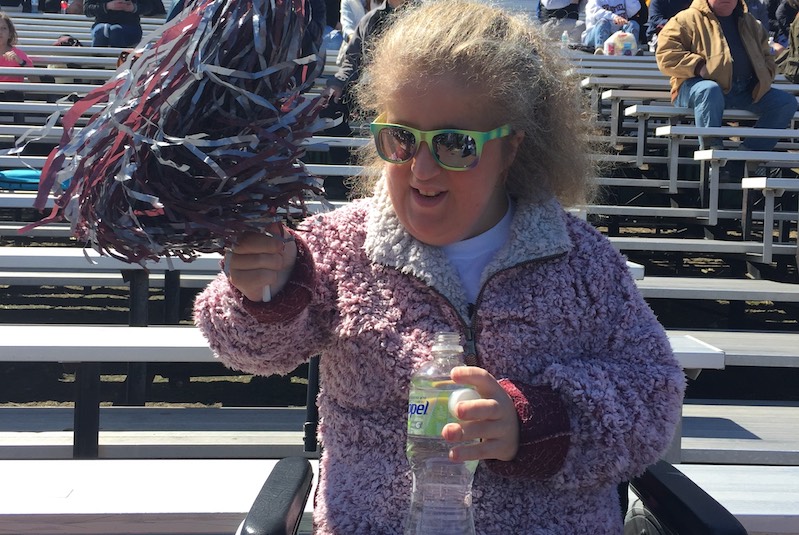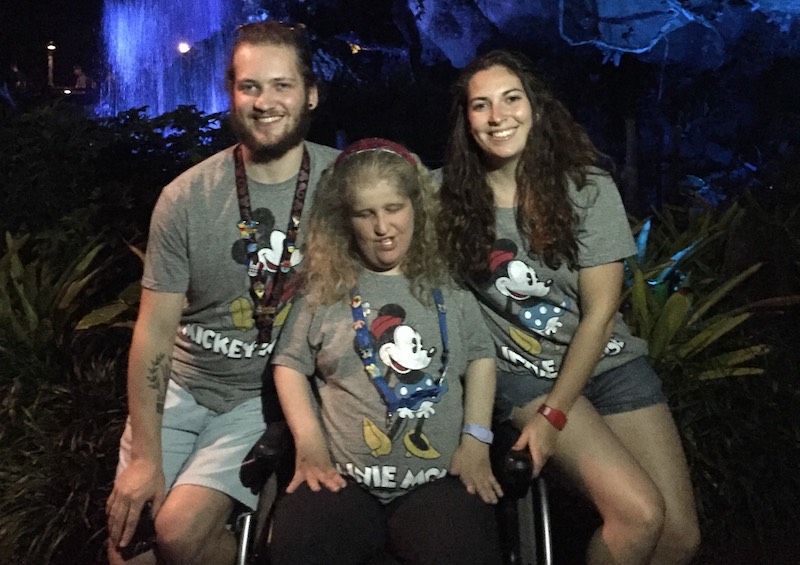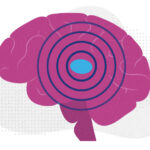Jillian’s story: Finding care, support, then a diagnosis

Eighteen-year-old Jillian Allair is funny, independent, sarcastic, and the charmer of the family. She loves music, especially top 40, and little kids, with a soft spot for those with medical challenges. Jillian knows a thing or two about medical challenges herself — she’s been a patient at Boston Children’s Hospital since she was 8 weeks old.
“I had a complicated pregnancy and several abnormal ultrasounds,” says her mom, Brenda. “Prenatally, they thought she had a form of dwarfism, but the genetics didn’t really match up, so we never got a specific diagnosis before her birth.”
Jillian was born at their local hospital in western Massachusetts, and seemed to be doing okay at first. “Then, at about 8 weeks, we noticed she didn’t seem to be engaging the same way our two older children had,” says Brenda. She brought Jillian to a local eye doctor, who said he thought she was blind, and referred them to the Department of Ophthalmology at Boston Children’s.
Seeing the bigger picture
At their first visit, they met with ophthalmologist Dr. Anne Fulton. “She didn’t just examine Jillian’s eyes — she was the first person to look at her as a whole person,” says Brenda. “Dr. Fulton said, ‘I don’t know what’s going on, but can refer you to people here who might.’”
These many years later, Brenda remains grateful for Dr. Fulton’s foresight. “She sent us in a direction I’m not sure anyone else would have thought of at that point,” says Brenda.

With a suspicion that Jillian’s kidneys may also be affected, Dr. Fulton referred the family to the Division of Nephrology. The nephrology team determined Jillian needed a kidney transplant. At just 15 months old, she became one of the youngest kidney transplants the team performed at that time. Brenda was her donor.
The transplant went well, but about a year later Jillian started losing skills. They were referred to the Department of Neurology at Boston Children’s, and the team there discovered she had severe spinal cord compression and would need surgery. They were referred to Dr. Mark Proctor, neurosurgeon-in-chief. “Dr. Proctor was really comforting,” says Brenda. “He knew we were really nervous about the surgery, but assured us that it was the best course of treatment for Jillian. And it was.”
A growing team of clinicians
As she grew, Jillian continued to develop new symptoms and medical issues related to her mystery condition. Over the years, her care team grew to include a specialist on every clinical floor.
“She spent her first six or eight years in and out of the hospital and needed many more surgeries,” says Brenda. She says that during those the first few years, they struggled with not having a name to put to Jillian’s condition.
“Boston Children’s really helped me get through the not knowing,” Brenda says. “They just continued to treat everything that came up, looking at her as a whole person and working together to make sure Jillian got the best care possible.”
Finally, a diagnosis
Jillian’s care teams also helped connect the family to outside resources for support. “Although I couldn’t talk with anyone who had the same condition as Jillian, they connected me with parents of kids with kidney transplants, blindness, and orthopedic issues, so we built small support communities around these groups.”
Then, about four years ago, it became possible for Jillian to have whole exome sequencing, and her condition finally had a name: WDR19, an ultra-rare type of ciliopathy, which affects many systems throughout the body.

“There’s still not a lot of information out there about WDR19 because it’s so rare,” says Brenda. “But it’s nice to understand why her body systems don’t work the same way as other people’s.” The diagnosis has also allowed them to connect with a few other families with same condition.
Moving forward with independence
Jillian hasn’t let any of her medical challenges hold her back. She’s active in her community and school, running track through the Special Olympics and participating on the Springfield College women’s lacrosse team through Team IMPACT. She’ll be graduating high school later this spring and attending a transition program in her town. Ultimately, she hopes to work in early childhood education.
“She wants to be a support for kids younger than her and use her own experiences to help them,” says Brenda.
Now she knows this is where we go to find answers, and the place we go to make her feel better. I think she feels like she’s in the right place.”
Brenda Allair, Jillian’s mom
She’s also fiercely independent. Although she has a wheelchair, she only uses it when she’s fatigued. She’s also learning how to use public transportation so she can get around on her own, and is in charge of her own medical care, including knowing the names of all 25 medications she takes, and why.
‘In the right place’
Jillian is currently listed for a liver transplant, so she visits Boston’s Children’s about twice a month to see Dr. Nancy Rodig and her transplant team. She knows everyone on the transplant floor and loves that everyone knows her. Brenda appreciates the time everyone on staff has taken to get to know Jillian as a person. “When she has a rough day, her clinicians know,” says Brenda. “When she’s not feeling well, they know she’s not herself. When she asks for pasta, they know she’s feeling better.”
Brenda says that in many ways, Jillian has grown up in the hospital. “When she was very little, things were touch and go for a long time, but now she knows this is where we go to find answers, and the place we go to make her feel better. I think she feels like she’s in the right place.”
Learn more about the Department of Ophthalmology, the Division of Nephrology, the Department of Neurosurgery, or the Liver Transplant Program.
Related Posts :
-

The dopamine reset: Restoring what’s missing in AADC deficiency
In March 2023, a young girl came to Boston Children’s Hospital unable to hold up her head — one striking symptom ...
-

New research sheds light on the genetic roots of amblyopia
For decades, amblyopia has been considered a disorder primarily caused by abnormal visual experiences early in life. But new research ...
-

The thalamus: A potential therapeutic target for neurodevelopmental disorders
Years ago, as a neurology resident, Chinfei Chen, MD, PhD, cared for a 20-year-old woman who had experienced a very ...
-

‘A football game changed my life’: Jamison’s non-directed kidney donation
When recess is your favorite school subject, and you’re so naturally funny that the adults in your life belly ...





